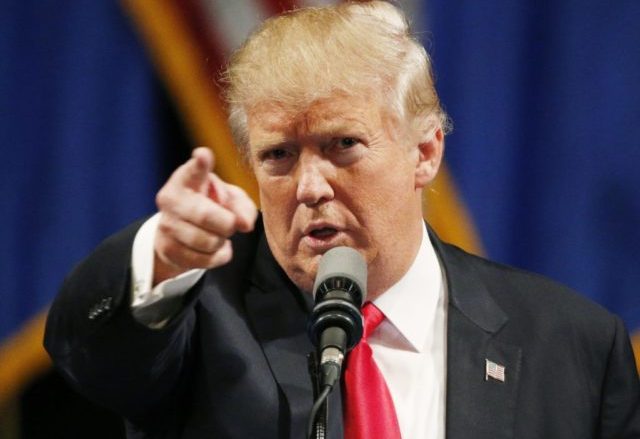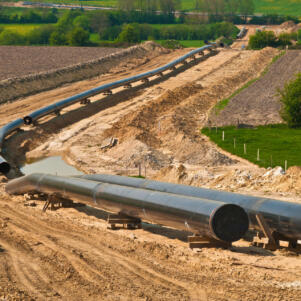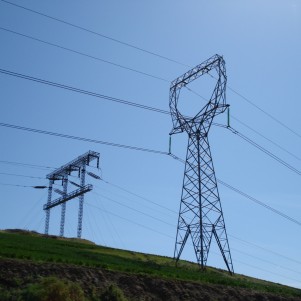Trump Versus the Press Feud May Indeed Be ‘Dangerous’
By Ira Stoll | October 19, 2017, 14:03 EDT

For the feud between President Donald Trump and the press, there is no shortage of explanations.
“Little Marco,” “low-energy Jeb,” and “Lying Hillary” have been vanquished. The Democrats are leaderless, and what leaders they have — Senator Chuck Schumer and House Minority Leader Nancy Pelosi — seem open to cooperating with the president when it makes tactical sense to them and to him. So Trump, with some accuracy, perceives the press as his main opposition.
Others see more sinister motives. Charles Blow, writing in the New York Times, declares, “The press is in search of truths and Trump is a fount of lies, which makes them natural adversaries. … Trump is abusing his power by trying to squash dissent through defamation of individual journalists, individual shows and individual networks or newspapers.”
The First Amendment lawyer Floyd Abrams, in an interview with my former New York Sun colleague Colin Miner, describes Trump’s press criticism as “dangerous” and “destructive.”
“By constantly attacking those doing their jobs by reporting facts, by accusing them of having a bias, the president is further dividing the nation,” Miner quotes Abrams as saying.
Newsweek went so far as to ask, in a headline, “Are Trump’s attacks on the press a dog whistle to anti-Semites?”
My own view of it is that Trump is correct to detect bias in the press. He’s also right to speak publicly about it.
Don’t just take my word for it. Michael Kinsley, the founding editor of Slate, wrote in the New York Times, “The New York Times, The Washington Post, CNN and other establishment outlets have been brazenly, laughably hostile to Mr. Trump, in their news pages as well as their opinion sections.”
The editor of the Washington Free Beacon, Matthew Continetti, in a recent column on “the liberal media bubble,” wrote that “What passes for news today is speculation and advocacy, wishful thinking and self-fashioning, mindless jabber and affirmations of virtue, removed from objective reality and common sense.”
Polls show the public mostly agrees with Continetti. As the Gallup organization put it in a September 2016 release headlined “Americans’ Trust in Mass Media Sinks to New Low,” “Americans’ trust in the media has fallen slowly and steadily. It has consistently been below a majority level since 2007.”
The bias comes through not only against Trump personally or members of his administration, but against his policy agenda. If you doubt it, try listening to this public radio interview with the former governor of Minnesota, Tim Pawlenty, about Trump’s tax reform plans. The reporter, Jeremy Hobson, peppers Pawlenty with so many hostile question that it sounds less like an interview than like an argument: “it would also increase the deficit hugely, right, in the trillions…. aren’t you worried that all of this, cutting taxes, yes, maybe it does lead to more economic growth, but it could also lead to more income inequality in this country, and we know that’s such a big problem right now.”
And, “Why should it be a priority in this tax plan to give a break to people inheriting in some cases multimillion dollar estates from their wealthy parents?”
Thank goodness we have National Public Radio to hold the line on that particular issue rather than leaving it to colleagues like New York Times publisher Arthur Ochs Sulzberger Jr. or his deputy, A.G. Sulzberger.
Hobson’s NPR show, Here & Now, claims to reach “an estimated 5 million weekly listeners on over 450 stations across the country.” It’s one thing if sponsors or donors want to pay for that. It’s another thing to demand taxpayer support for it via the $445,000,000 annual congressional appropriation to the Corporation for Public Broadcasting. Pro-tax-cut radio broadcasters, like Rush Limbaugh, Mark Levin, and Sean Hannity, have to make do without government funding.
One reason public radio is so adamantly against the proposed tax cut may be the fear that, as Hobson put it while interviewing Pawlenty, “you are going to have a lot less money coming in to the federal coffers.”
That might mean less money for politicians to give away to NPR, and more money in the bank accounts of American families who do not work for public radio.
So, yes, if Trump’s complaints about the press can help Americans see through some of the nonsense, it could indeed be “dangerous.” Just perhaps not in exactly the way Floyd Abrams meant.
Ira Stoll is editor of FutureOfCapitalism.com and author of JFK, Conservative.











